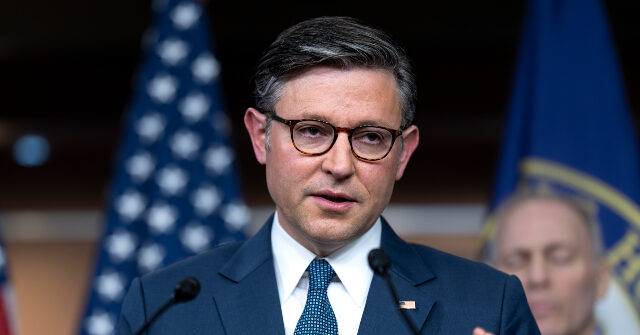Speaker Mike Johnson (R-LA) voiced his stance on Ukraine aid during a House Republican leadership press conference, asserting that further assistance should wait until President-elect Donald Trump assumes office in January. He emphasized that the decision to provide additional support to Ukraine should rest with Trump, reinforcing his belief that the dynamics of the ongoing conflict between Russia and Ukraine would shift significantly under Trump’s leadership. Johnson’s comments reflect a broader GOP sentiment that current decisions on foreign aid, particularly regarding the war in Ukraine, should be deferred to the incoming administration and not made by President Biden’s team at this stage.
Johnson underscored that the newly elected president should have the primary authority in determining the course of U.S. involvement in the conflict. This perspective indicates a growing skepticism within segments of the Republican Party regarding Biden’s approach to foreign policy, especially concerning Ukraine. He characterized the current moment as an opportunity for Trump to reset U.S. relations and support strategies for Ukraine, suggesting that under Trump, there would be a reevaluation of how the U.S. engages in the conflict. This approach fits into the broader narrative that Trump’s presidency would lead to a significant transformation in U.S. foreign policy, particularly in relation to Russia.
In response to ongoing military needs, the Biden administration has sought to bolster Ukraine’s defenses with a request for $8 billion in security assistance. The proposed aid aims to provide military equipment, training for Ukrainian forces, and further logistical support amid a conflict that has drawn international attention. Additionally, the White House requested $16 billion for the Department of Defense to ensure that Ukraine continues to receive necessary supplies to combat Russian aggression. This indicates an urgent acknowledgment of Ukraine’s dire military situation and the need for sustained American support, which Johnson’s stance complicates as he calls for a halt to funding until a new administration takes over.
Trump has been vocal about his intentions regarding the Russia-Ukraine conflict, asserting in September that he aims to negotiate an end to the hostilities even before taking office. He highlighted the extensive human suffering and destruction resulting from the war, emphasizing his desire to quickly broker peace as a way to alleviate the loss of life and devastation in Ukraine. Trump’s criticism of the previous administration’s handling of international relations underscores his belief that the U.S. withdrawal from Afghanistan set a negative precedent that emboldened Russia. He placed significant blame on Biden, claiming that the perception of American leadership had deteriorated since his own presidency, suggesting that a Trump-led administration would restore strength and decisiveness in addressing global conflicts.
The potential for a change in Ukraine’s military strategy was also echoed by Ukrainian President Volodymyr Zelensky, who proposed that the ongoing “hot war” could end if Ukraine received guaranteed protection under a “NATO umbrella.” This suggests a strategic pivot toward diplomatic solutions and security assurances, indicating that Ukraine is exploring all possible avenues to regain territories occupied by Russia. Zelensky’s comments, alongside Johnson’s, reflect a landscape where military and diplomatic tactics are being reassessed, potentially influenced by the political changes in the U.S. They highlight the intertwined nature of U.S. policy and Ukraine’s military posture amid a changing global environment.
In summary, the discussions surrounding Ukraine aid reflect a complex interplay of political priorities in Washington, shaped by the imminent transition in presidential leadership. Johnson’s remarks articulate a clear stance that favor prioritizing Trump’s input on military assistance to Ukraine after the inauguration, reflecting a broader Republican critique of Biden’s policies. This position not only outlines a potential shift in U.S. foreign policy but also raises questions about the effectiveness of ongoing support for Ukraine during a critical period of military conflict. As the situation evolves, the focus will remain on how the incoming administration under Trump will approach the U.S.-Ukraine relationship and navigate the complexities of the ongoing war with Russia.

